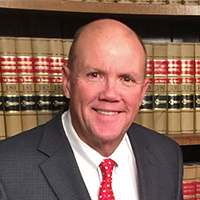 Chancellor Estate Lawyers, Alabama
Chancellor Estate Lawyers, Alabama
Sponsored Lawyers
1-3 of 3 matches
141 East Reynolds Street
Ozark, AL 36360
Divorce & Family Law, Criminal, Accident & Injury, Business, Estate
William Matthews, Jr. is a practicing lawyer in the state of Alabama specializing in Divorce & Family Law; Criminal; Accident & Injury; Bankruptcy & Debt; Estate. Mr. Matthews received his J.D. from the University of Alabama School of Law in 1981.
(more)





